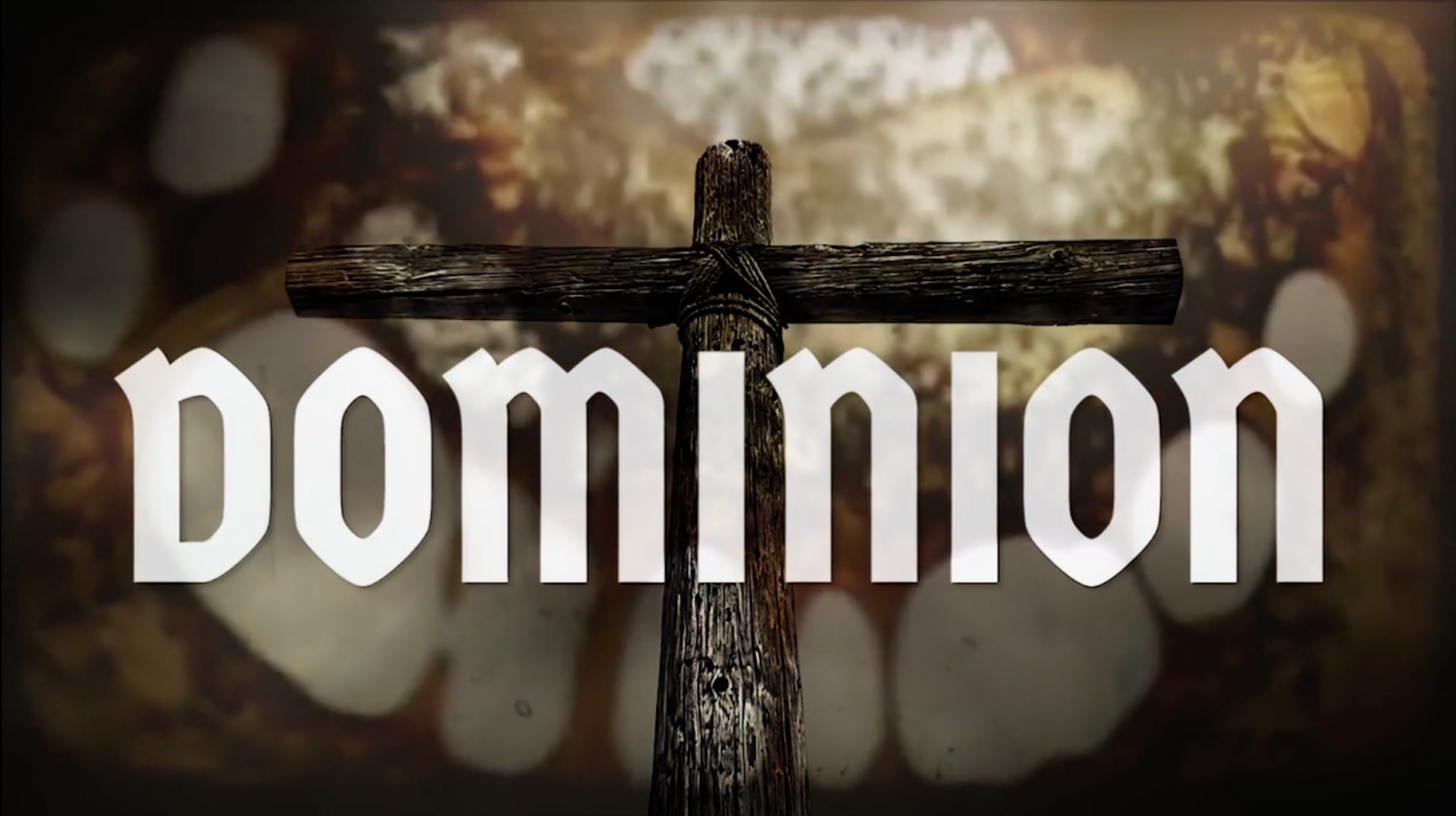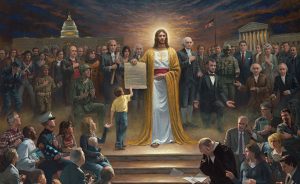
DOMINION is an episodic documentary series that explores the history and culture of religion in America, particularly how religion has been co-opted by right wing politics in the west.
There is no denying the historicity of Judeo-Christian philosophy within the forming of America; but to say that our country is a “Christian Nation” is a misnomer. It is the opinion of the filmmakers that many people in this country, both believers and non- believers alike, agree that there is a difference between theology and theocracy.
The series will focus primarily on the social political construct known as THE SEVEN MOUNTAINS MANDATE; first conceptualized in 1975, it claims that believers have a duty, a mandate to turn the culture of the world to Christ. In other words, only Christian leaders and Christian ideology are fit to run the world.
For more information on “The Seven Mountains Mandate” click >here<.
Dominion Theology has abused its position and power within many American institutions, to the point that the words “Christian Fundamentalism” are associated with negative themes like oppression, narrow-mindedness, bigotry, Bible-worship, etc…
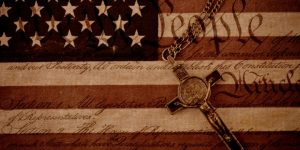
It’s the intention of the filmmakers to empower true Christians to stand up and reclaim their faith. So that they might replace the negative stigmas surrounding their religion so that Christian Fundamentals are once again: love, compassion, charity, humility and forgiveness.
Click >here< for a statement from series creator Albert Lopez about the goals of the series.
THE FOUNDER
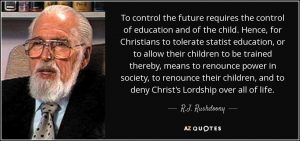
Not many people are familiar with the name Rousas John Rushdoony. He was a religious philosopher who, throughout the 20th century, pushed for a more medieval interpretation of biblical texts for modern life, all in order to ‘claim the nation for Christ’.
His books, “The Institutes of Biblical Law”, have helped influence and shape the practices and beliefs of the religious right. His teachings also influenced politicians such as Ted Cruz, Newt Gingrich, Michelle Bachman, Sarah Palin, Mike Pence and many many more.
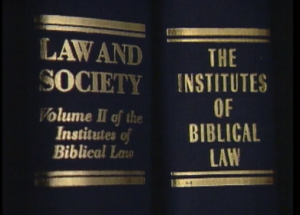
It’s worth mentioning that although many politicians and religious leaders follow the social foundations set by Rushdoony’s books, they are reluctant to site him by name. Here are a couple of quotes from R.J.R. that might illustrate why:
“The only true order is founded on Biblical Law. All law is religious in nature, and every non-Biblical law-order represents an anti-Christ religion.”
“In the name of toleration, the believer is asked to associate on a common level of total acceptance with the atheist, the pervert, the criminal, and the adherents of other religions as though no differences existed.”
“The matriarchal society is thus the decadent and broken. The strongly matriarchal character of the Negro life is due to the moral failure of Negro men.”
“The move from Africa to America was a vast increase of freedom for the Negro, materially and spiritually.”
“And our responsibility is to exercise dominion which means to declare where sovereignty resides and to declare God’s sovereign world; the word of dominion… Let’s plant our feet on the face of all the earth and claim it for Jesus Christ.”
“…The covenant people must wage war against the enemies of God.”
Rushdoony maintains that almost all of the Old Testament civil law is normative for civil governments and can be mandated to a modern society. Rushdoony provides an outline in his series of books of a program for establishing a Christian theocracy.
His philosophy, known as Theonomy, is like a mix of Calvinist Christianity with a Libertarian leaning towards minimal government involvement. Rushdoony’s church, The Chalcedon Foundation, still exists to this day and continues to preach the hard right ideologies of its progenitor.
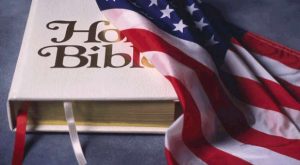
Theologian John Frame gave these works a mixed review in Westminster Theological Journal, writing that the book convinced him that “Rushdoony is one of the most important Christian social critics alive today”, but he also criticized it on various grounds. Frame credited Rushdoony with cogently arguing against attempts to replace scripture with natural law, with showing a broad and deep knowledge of scripture. However, he found the books “a bit rough-hewn”, noting that it “began as a series of lectures” and in some respects still resembles one.
The series will seek to bring to light the history, teachings and impact that Rushdoony has had on Christian politics in America. The goal is objectivity. We will hear about Dominionism, as defined in their own words, directly from the preachers, public figures and politicians who practice it openly. We are also going to hear from voices within the religious community who find Rushdoony’s teachings problematic and dangerous for Christianity and for Christians.
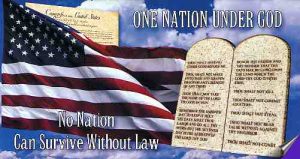
There is a negative stigma that comes with the term “Dominionist” and many believers are weary of the use of that word; as it has often been used to paint all people of faith with the same broad brush strokes. In 21st century America, there is a schism within the religious community on the topic of Dominionism as some believers are convinced that it is a legitimate interpretation of scripture, whereas others believe it to be biblical heresy.
Christian Organizations, like BJC have began petitions, calling for Christians to take a stand against Christian Nationalism. It’s important for the integrity of the series to reach out to believers who recognize the dangers of dominionism, and asks that they take a stand for their faith.
“We are not making a religious hit piece here. The more people we speak with, on all sides of the issues, the better the end result will be. The more we will get out of this process.” – Albert Lopez, Dominion series creator
THE SURVIVORS
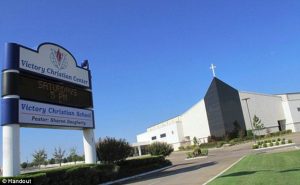
Serving as the human interest angle on the series; Dominion will explore the lives and histories of multiple children, now adults, who grew up in the midst of theocratic practices and survived those traumas. Albert Lopez, the series creator, was brought up inside the infamous Victory Christian School; an institution surrounded in scandal. Their goal is to raise children according to “Biblical Standards“.
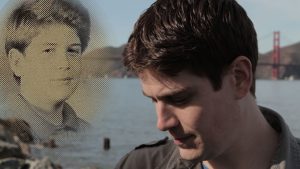
Albert and his former classmates, now grown, are bonded by their shared experience and recall on camera what it was like to go to VCS. One of the main focuses of Dominionism is the indoctrination of the young. The goal of that institution was to create like-minded people rather than foster critical thinking. Many of the people who came out of VCS suffer from mental health issues or substance abuse problems.
Albert and his friends are willing to go on the record to discuss their upbringing in the hopes that it may resonate with the audience and provide closure for the survivors. There is no one more qualified to bring this unique story of personal struggle to the screen than Albert; this project represents the culmination of a journey he has been on most of his life.
THE MODERN ATHEIST MOVEMENT

Just as organized religion has its negative stigmas, Atheists carry their own reputation as angry, hair-trigger, argumentative dogma-lawyers who would rather mock a person for what they choose to believe, rather than attempt to understand it.
Somewhere along the lines, communication between beliefs completely broke down as though the train of civil discourse came to a screeching halt. In 21st century America, belief has become a contest and average people, whether they believe in a god or not, are more interested in receiving high-fives from members of their own tribes than to find any kind of understanding or community with different people. Whether they will admit to it or not, the modern atheist movement is contributing to the problem of tribalism in our culture.
It is the goal of the filmmakers to present atheists with the proper information and knowledge to put the fight where it belongs. When an atheist complains about what they don’t like about the practices of religious people… the chances are, they are describing behavior akin to DOMINIONISM and not CHRISTIANITY.
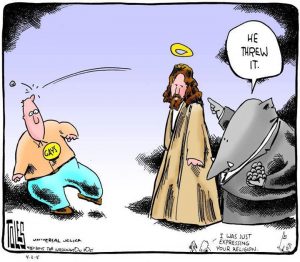
Philosopher Alain de Botton, describes eloquently in his TED talk, of a concept he calls ATHEISM 2.0 that is very open to adapting certain religious processes. Botton explains, “Going through religion in a both respectful and un-Pius way and saying ‘what here can we use?’ [because] the secular world is full of wholes, and we have secularized it badly. A thorough study of religion can give us all sorts of insights into areas of life.”
Atheism in modern America is more complex and nuanced than people realize. For example, not many know that in America, certain members of the black community face ostracism from their own family and friends if they try and have a life outside of the church. The deliverance of African Americans from the horrors of slavery is synonymous with the Biblical Exodus. To deny Christ is to deny the cause of freedom. The filmmakers would encourage believers not to judge those who chose to live as Atheists.
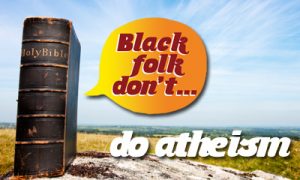
To form an evaluation of someone purely based on what they chose to believe, regardless of what they believe, is completely wrong. We see this idea constantly mainstreamed in black media, through the culture’s treatment of black non-believers.
Production has already begun in California, Texas, Viginia and Oklahoma. The filmmakers are interviewing immediate family, close friends and members of various churches. We are casting our nets wide in hopes to engage with as many denominations, as many schools of thought, as many opinions and different beliefs as possible.
